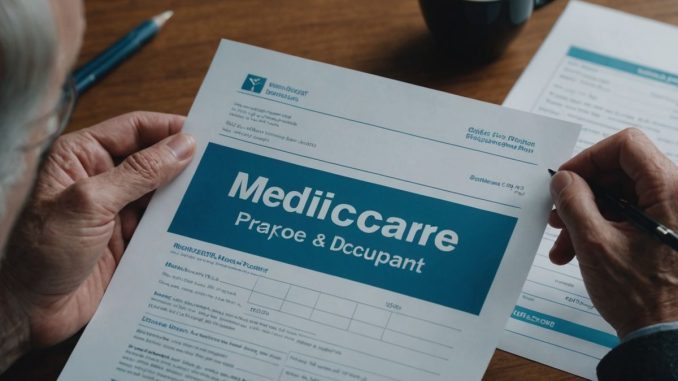
A new Medicare rule set to take effect on January 1 could disqualify some private employer health plans from being considered creditable coverage. This change may impact individuals over 65 who delay enrolling in Medicare due to their employer’s health insurance, potentially leading to penalties.
Key Takeaways
- New Medicare rule affects prescription drug coverage under Part D.
- Employer health plans must meet new criteria to be considered creditable.
- Failure to meet criteria could result in penalties for delayed Medicare enrollment.
Changes to Medicare Prescription Drug Coverage
The upcoming changes to Medicare prescription drug coverage are part of the Inflation Reduction Act. These changes aim to improve benefits under Part D, but they also introduce new criteria for what constitutes creditable coverage. Starting January 1, the out-of-pocket maximum under Part D will be capped at $2,000 annually.
Impact on Employer Health Plans
Employer health plans that previously qualified as creditable may no longer meet the new standards. Specifically, if a private plan does not cap out-of-pocket expenses at $2,000 or less per year, it will not be considered a sufficient substitute for Medicare Part D. This could affect employees who are 65 or older and still rely on their employer’s health insurance.
Penalties for Late Enrollment
Medicare imposes a late enrollment penalty for those who do not sign up for Part D when first eligible and lack creditable coverage for 63 or more consecutive days. The penalty is calculated by multiplying 1% of the national base beneficiary premium ($34.70 in 2024) by the number of full, uncovered months. This amount is then permanently added to the monthly Part D premium.
What You Should Do
If you are 65 or older and covered by an employer health plan, it’s crucial to verify whether your plan meets the new Medicare standards. Insurers are required to notify policyholders if their prescription drug coverage is creditable. However, if you haven’t received this notification, it’s advisable to inquire with your employer or insurer to make informed coverage decisions before the new rule takes effect.
Conclusion
The new Medicare rule introduces significant changes that could disqualify some private employer health plans from being considered creditable coverage. This could lead to penalties for those who delay enrolling in Medicare. It’s essential to review your current health plan and make necessary adjustments to avoid any unexpected costs.

